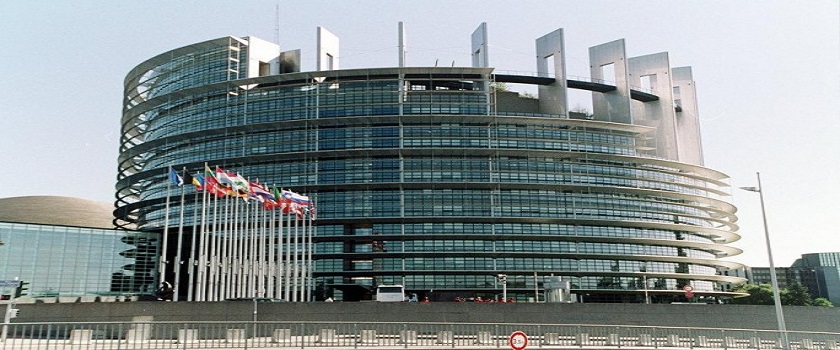Israel pressures to prevent a European decision against the "deal of the century"

Palestine Economy Portal
Foreign ministers of European Union countries are discussing the alleged peace plan for US President Donald Trump, known as the "Deal of the Century", amid expectations that this will issue a statement of the EU's position on the plan, while Israel seeks to thwart a decision against the deal.
The Israeli newspaper "Ha’aretz" said today, Sunday, that it is expected to do this during a meeting of foreign ministers of the European Union, tomorrow. Adding that the steps that may be approved are not yet clear, but it appears that they will be on the declarative side, such as declaring officially that the European Union opposes the "deal of the century", or making a decision to reconsider the European Union's position on the Israeli-Palestinian conflict.
The newspaper reported that, in recent days, Israeli ambassadors in European countries exerted great pressure on the foreign ministries in those countries, with the aim of its delegates refraining from rejecting the plan and from statements or proposals of tough proposals on it.
It is noteworthy that the decisions of the European Union should be taken unanimously by the member states of the union. With Israel blocking decisions against it in the European Union by exploiting its relations with some of the member states of the Union, such as Hungary, which thwarted many similar decisions in the past.
The newspaper quoted sources familiar with the contents of the talks, saying that Israeli delegates claim that Israel is ready to resume negotiations with the Palestinians, and that the European Union's opposition to the "deal of the century" will encourage "Palestinian rejection."
The Israeli delegates also consider in their talks with the Europeans that it is not reasonable for the European Union to take a harsh stance on the deal more than several Arab countries, which it did not condemn.
The European Union announced after revealing the details of the "Deal of the Century" that it would study it, but the European Union's Foreign Minister, Josep Borrell, announced last week his rejection of the deal, in the wake of statements by the Israeli Prime Minister Benjamin Netanyahu of his intention to annex the settlements and the Jordan Valley to Israel.
Borrell stressed, during his visit to Jordan, that the European Union is committed to a two-state solution and international law, and that the European Union will not remain idle if Israel declares unilaterally annexing areas of the West Bank.


